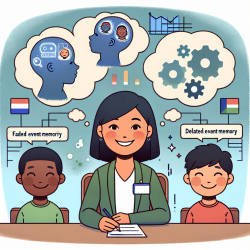In the ever-evolving field of speech-language pathology (SLP), professionals are continually seeking ways to enhance their practice and improve outcomes for individuals with communication disorders. One area that has seen significant research and development is language intervention strategies for adults with aphasia. Aphasia, a disorder resulting from damage to the parts of the brain that produce and process language, can significantly impact an individual's ability to communicate. As SLPs, staying informed about the latest research and integrating evidence-based practices into our therapeutic approaches is crucial for providing the best care possible.
The publication of the second edition of "Language Intervention Strategies in Adult Aphasia" edited by Roberta Chapey, is a testament to the dynamic and challenging nature of language rehabilitation for adults with aphasia. This comprehensive collection of articles provides a deep dive into current approaches and techniques in the treatment of adult aphasia, emphasizing the importance of accountability and the necessity to establish and validate a rationale for preferred therapy techniques.
For practitioners looking to refine their skills or explore new methodologies, this resource offers invaluable insights into the complexities of aphasia treatment. Below are key takeaways from the research presented in the book and how they can be applied to improve SLP practice:
- Focus on Individualized Care: A careful assessment of the individual with aphasia is crucial for selecting the best combination of intervention strategies. Tailoring therapy to the unique needs of each client ensures more effective and meaningful outcomes.
- Embrace a Multidisciplinary Approach: The research underscores the need for a team approach in setting pragmatic goals for aphasia treatment. Collaborating with other professionals, including occupational therapists, psychologists, and neurologists, can provide a more comprehensive care plan.
- Integrate Technology: The use of microcomputers and microprocessors in education has been highlighted as a significant advancement in aphasia therapy. Exploring and incorporating technology-based interventions can enhance traditional therapy methods and engage clients in innovative ways.
- Accountability in Therapy Techniques: The book stresses the importance of being able to establish and validate a rationale for any preferred therapy technique. This calls for ongoing professional development and engagement with current research to ensure that the methods used are evidence-based and effective.
- Addressing Kindred Disorders: In addition to aphasia, the book includes a section devoted to the management of related disorders. This holistic approach to therapy acknowledges the complex nature of communication disorders and the importance of addressing co-occurring conditions.
Implementing the outcomes of this research into practice not only enhances the SLP's toolkit but also aligns with the broader goal of improving the quality of life for individuals with aphasia. Encouraging further research and professional development in this area is essential for the continued growth and success of speech-language pathology as a field.
As we navigate the challenges and opportunities presented by adult aphasia therapy, resources like "Language Intervention Strategies in Adult Aphasia" serve as a crucial guide. They remind us of the importance of evidence-based practice, the need for professional accountability, and the impact of our work on the lives of those we serve.
To read the original research paper, please follow this link: Language Intervention Strategies in Adult Aphasia.










